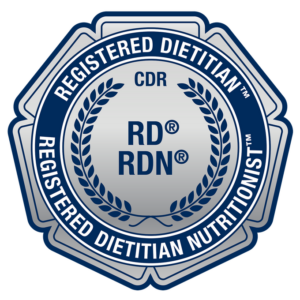Brain-Gut Connection– Is your Gut affecting your mood?
Brain Fog, Irritability, Inability to focus…what do they all have in common? We often think that stress is the cause. But, have you ever considered that your gut is talking to your brain. Think about the phrase, “I just have a gut feeling.” Or “follow your gut.” More and more research is identifying the brain-gut connection.
Let’s unpack some of the exciting new research about the connection between gut health, mood, and stress. Learn about your friendly resident gut microbes, probiotic foods, and supplements. As well as offer some simple recipes to keep your gut and taste buds happy.
GUT MICROBES
There are trillions of microbes that happily live in our gut. These friendly microbes have many duties, including:
- Help us digest foods
- Make vitamins
- Protect us from the not-so-friendly microbes
- They have mood-boosting and stress-busting functions too!
While the research is exploring the many gut microbe-brain connections concerning mood/stress benefits, I want to share it with you!
GUT MICROBES AND PROBIOTICS
The microbes that live in our guts are known as our “gut microbiota.” The bacteria that we can ingest are known as “probiotics”.
“Probiotics” are live organisms that you can eat, drink, or take as a supplement. They turn milk into yogurt and cabbage into sauerkraut, and they are great for both your gut health and mental health. Unique probiotics that have mental health benefits are called “psychobiotics” (psycho = mental health, and biotics = live). They are live organisms that can benefit our psyche.
PROBIOTIC-RICH FOODS AND SUPPLEMENTS
Foods containing probiotics:
- Yogurt
- Sauerkraut (and other fermented veggies)
- Miso
- Tempeh
- Kimchi
- Kefir
Be sure to choose unpasteurized ones that will be refrigerated in your local grocer. It is not recommended that you consume unpasteurized foods if you are pregnant or have a compromised immune system, so please check with your healthcare provider.
Of course, there are several probiotic supplements available too. So check with your healthcare provider to identify which one is best for you. Generally, we look for one that’s refrigerated and has at least 10 billion active cultures. We also suggest you look for one that has been “third party tested,” which means someone outside the company has tested it and says it’s a quality product.
Also, be sure to read the label before taking any supplements. The probiotics with the most research are of the Bifidobacterium and Lactobacillus types. But the psychobiotic effects to make specific mood-boosting recommendations are still being researched.
SIMPLE, PROBIOTIC-RICH RECIPES
Try some of these recipes –
Confetti Vegetable Salad with Miso Dressing
Cauliflower Olive Salad with Yogurt
Strawberry Almond Chia Pudding
GUT-BRAIN CONNECTION
It may not seem obvious, but your body is interconnected in many ways, and more research is focusing on the “microbiota-gut-brain axis.” This brain-gut connection is a very complicated connection between your gut, its microbes, and your brain. This new field has been called a “paradigm shift in neuroscience” (Dinan, 2017).
There are several ways that researchers are beginning to understand the brain-gut connection. One is via the “vagus” nerve. It is a nerve that directly connects your gut to your brain. The other ways are through “biochemical messengers.” These messengers are made in your digestive system and travel throughout the body to communicate with other organs, including your brain. Examples of biochemicals include short-chain fatty acids, cytokines, and even tryptophan, which is the amino acid that makes up the neurotransmitters melatonin and serotonin.
The exciting thing is that this may help us with not only mood and stress, but the microbiota-gut-brain axis may one day prove to be helpful for other conditions like autism and Parkinson’s.
MOOD, STRESS, AND YOUR GUT MICROBES
But can it work the other way around? Can changing our gut microbes affect our moods and stress responses?
“Gut microbiota and probiotics alter behavior and brain neurochemistry.” (Ait-Belgnaoui, et al., 2012) That’s a pretty powerful statement on the brain-gut connection.
Human studies show that after a few weeks of taking probiotic foods or supplements, healthy people have reduced stress hormones, feelings of stress, negative thoughts, and sad moods.
One fascinating study showed that when people took probiotics, brain MRI (magnetic resonance imaging) tests showed reduced brain activity for negative and aggressive thoughts!
There is some exciting research on the positive effect that probiotics can have on moods and stress. So, what can you do to nurture your brain-gut connection?
PREBIOTICS
In Part 1, we talked about the benefits of consuming probiotic-rich food. Once the gut microbes take up residence in our guts, we need to feed them!
PREbiotics are food for gut microbes and, when fermented in the gut, produce specific changes in bacterial composition or activity. They are your friendly gut microbes’ favorite delicacies, so they’ll happily grow and multiply. Prebiotics are foods that contain fiber.
- Fruits
- Vegetables
- Nuts and seeds
- Dark chocolate (preferably with at least 70% cocoa)
Foods that are particularly high in prebiotics include:
- Jicama
- Asparagus
- Avocado
- Whole grains
- Allium vegetables like onions, garlic, leeks, and shallots
In people, studies show that taking psychobiotics along with prebiotics can improve both the microbes in our gut, as well as our mood.
PREBIOTIC-RICH RECIPES
Asparagus with Lemon Thyme Dressing
Triple Greens Soup with Avocado
Creamy Mediterranean Garlic Chicken
I am here to help you.
Do you still question whether your nutrient intake is balanced? Schedule a “get to know you” session where I offer a complimentary health review. As a result of this evaluation, I can then provide suggestions on nutrient and possible supplement additions for your daily life. Please contact me for a free health consultation.


